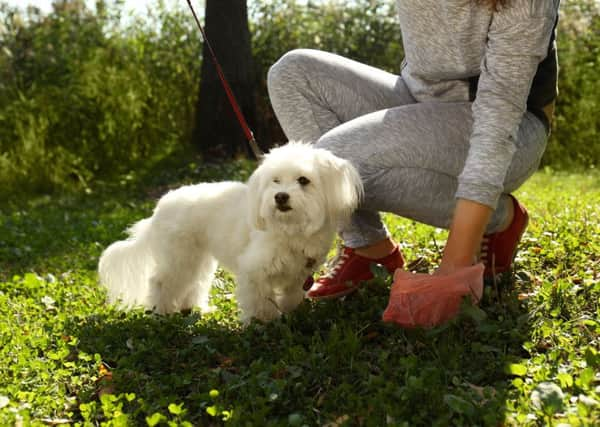Dogs' mess causes a stink says Gosport reverend


‘Frankly, it seems they spend a lot of time shovelling dogs’ mess.’
To be fair, they did go on to explain what a ward councillor did very well, though his frustration with dogs’ mess was palpable.
Advertisement
Hide AdAdvertisement
Hide AdThere is a problem with dogs’ mess. According to Dogs Trust, the UK’s nine million dogs produce more than 1,000 tonnes of waste each day.
That weighs as much as 200 elephants or 100 double decker buses.
Furthermore, the average dog produces 152lbs of solid waste per year and in a city of 100,000 people, dogs can generate two-and-a-half tonnes of faeces per day.
One gram of dog faeces contains more than 20 million E coli bacteria.
Advertisement
Hide AdAdvertisement
Hide AdA recent study by Professor Christopher Lowe at the University of Central Lancashire revealed £22m is spent each year on dog waste collection by local authorities in England and Wales.
They surveyed 933 people and found most dog walkers claimed to clean up after their dogs. Only three per cent said they would not pick up their dog’s poop.
However, even though this is just a small percentage, there are significant consequences.
Abandoned dog excrement can be both harmful to humans and the environment.
Advertisement
Hide AdAdvertisement
Hide AdDog waste carries a large number of parasites – including hookworms, ringworms, tapeworms and salmonella.
Such parasites can do a great deal of harm and can cause digestive upsets, and in some cases, even blindness.
Dog excrement is also full of E Coli and other harmful bacteria including faecal coliform bacteria, which causes serious kidney disorders, intestinal illness, cramps and diarrhoea in humans.
This puts strain on local resources when the excrement needs to be picked up and diverts valuable council money which could be used more usefully.
Advertisement
Hide AdAdvertisement
Hide AdBut local councils have a legal obligation to keep public areas like parks playgrounds and pavements clear of dog mess.
Most dog-owners are good citizens who take responsibility for their much-loved pets and appreciate the importance of dealing with their animal’s mess.
It is those dog-owners who do not take responsibility for their dogs’ who are the problem.
They fail to appreciate the risk to the community’s health and the drain it makes on the local councils’ budgets.
Advertisement
Hide AdAdvertisement
Hide AdI would love to have a conversation with the chairman of the political party again in a few years’ with the prospects of hearing something about a local councillor’s role.
I am sure I am not alone in wanting the problem with dogs’ mess to be a thing of the past.